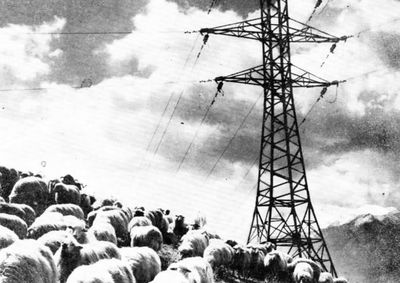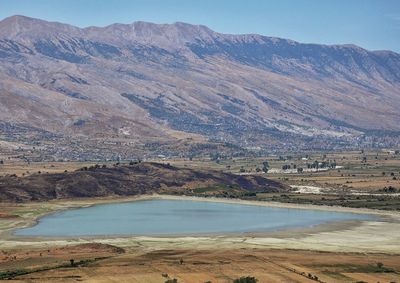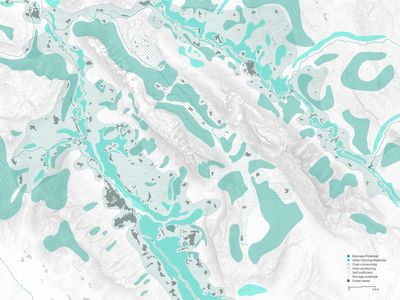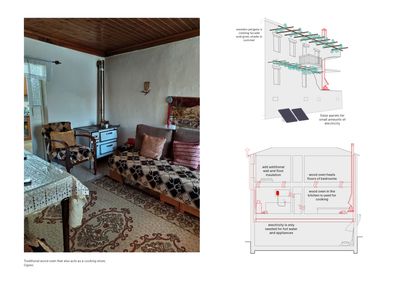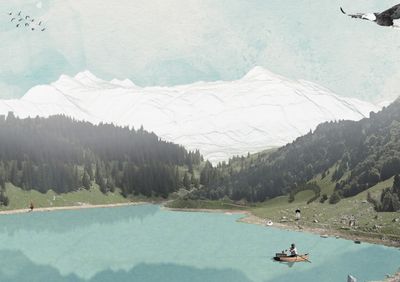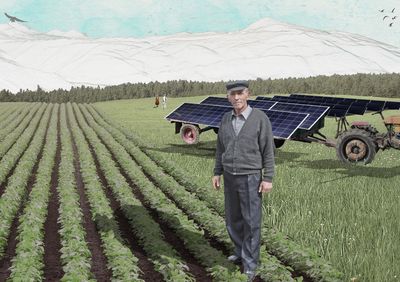Countryside and Energy—Fshat i EnergjisëEnergy Independence for Albania: Production or Reduction?Nicola Graf, Leart Sejdiu, and Egisa Gjika
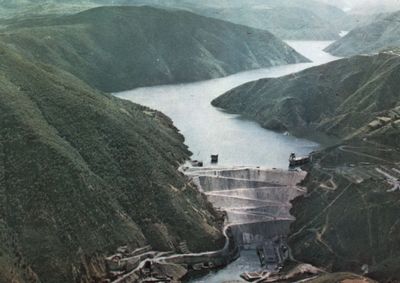
The economy is growing, energy consumption is rising. Albania needs more energy. Or perhaps not? Albania is considered one of the “greenest” electricity producers in Europe, using almost solely hydroelectric power. However, it is certainly not the greenest consumer, due to the need to import “dirty” electricity from neighbouring countries caused by seasonal inconsistencies of hydro power production. During the winter, rainfall accounts for an overproduction of energy and the opposite occurs in summer.
The Government’s response to the fluctuating demand is to construct new hydro plants along the Vjosa, Drino and Bistrica rivers in the south—alongside rural Albanian communities. Hydroelectricity is a renewable energy source—but the dams negatively impact the environment. The Vjosa river is one of the last wild rivers in Europe. Dam construction along the Vjosa River is heavily protested due to its detrimental impact on the natural environment of the current free meandering course.
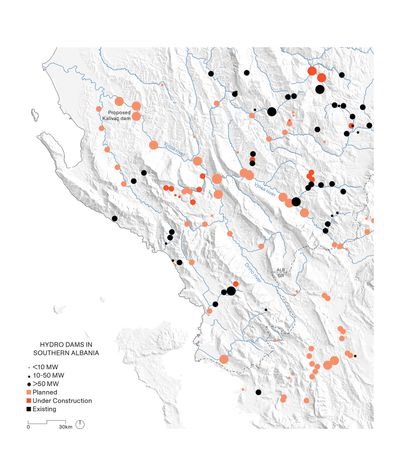
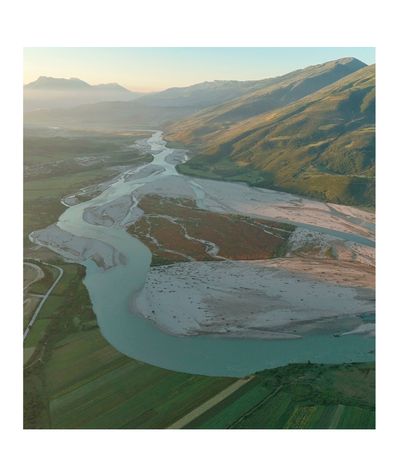
Energy Consumption in the Drino Valley: The Example of Nivan, Asim Zeneli, Gjirokastër
By analysing three sites in the Drino Valley with different altitudes, lifestyles and scales, we identified different types of energy consumption in the Drino Valley. Remote villages, such as Nivan, use local wood as the main energy source, small towns in the valley, such as Asim Zeneli, shop for fossil fuels, and the urban centres, such as Gjirokastër, heat with electricity.
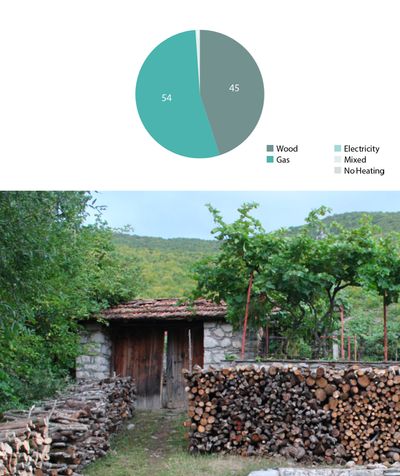
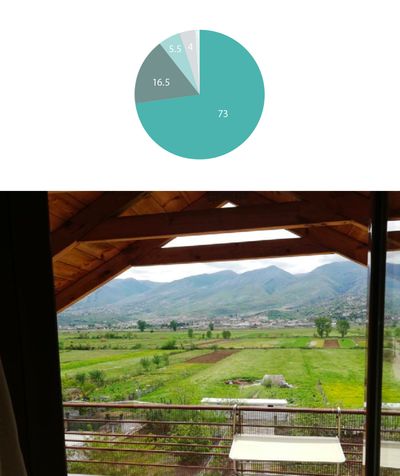
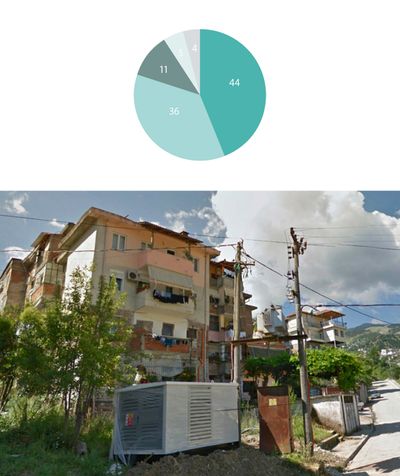
The Agroenergy Park
Increasing production will not solve the issue—the focus needs to be on storing excess production. Albanias centralised energy grid creates a disconnect between the energy source and the energy consumer. In order to begin to combat this issue, we need to be able to store and manage energy locally, so that domestically produced energy can be used on demand. A decentralised grid will help to localise production in the Gjirokastër region and reduce the overall consumption.
